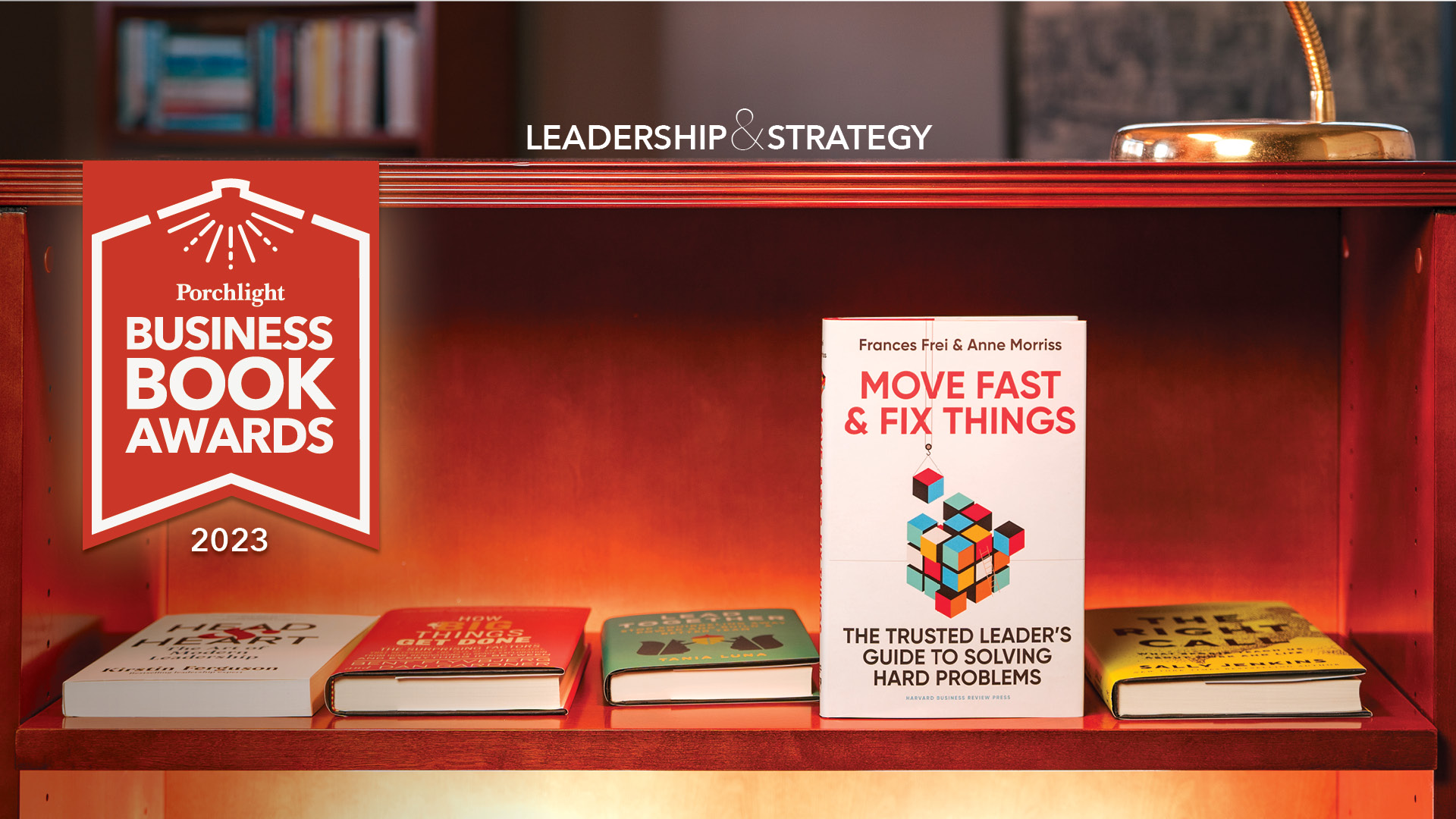Move Fast and Fix Things | An Excerpt from the Leadership & Strategy Category
As Porchlight's Managing Director Sally Haldorson recently wrote:
In addition to its being a functional book, Move Fast and Fix Things is a fun and funny book, a personable book. The reason I highlight this is because we (and I’m speaking about business book readers generally) don’t tend to think humor and/or humanness belongs in the serious business of organizational change. If we are talking about problems, then we better get serious. And of course the material hereis serious, but it’s rare for a business book to be as authentic as the authors themselves, as you might experience them while listening to their podcast or watching their TedTalks. Within these pages is a methodology for making things better in your organization, but it’s also an enjoyable reading experience dotted with poetry reference and personal anecdotes.
The following excerpt comes from Chapter Three, which helps us learn how to "Make New Friends" and encourages the reader to "Include Yourself, Too."

Most of us are not working in environments where we feel celebrated or championed today. If we had to summarize our own mission in doing the work we do, it’s to make that statement obsolete. Said more hopefully, if not more poetically, we hope to do our part to help move as many people as possible up the Inclusion Dial. [We believe a culture of inclusion has four levels: safe, welcome, celebrated, and championed.] If we can create a world where more people can truly thrive in more workplaces, then our species gets to fix more of our problems faster.
There are both institutional and individual barriers to the arrival of that new world. In her novel The Shipping News, the great Annie Proulx observed, “We’re all strange inside. We learn how to disguise our differences as we grow up.” We welcome Proulx’s reminder that we have some agency over how much of ourselves we share with the world. If we’re the ones disguising our differences, then we’re also the ones with the power to unmask them, which means we don’t have to wait to be ourselves until the world figures out how to crack the code on inclusion.
How do we include ourselves, too? How and when do we risk authenticity in imperfect conditions? To be our “real selves” sounds nice in theory, but there can be powerful, hard-earned incentives to hold back certain truths. No one comes by Proulx’s disguises casually. The decision to cover up our differences can be highly practical, if wrenching, as in the decision to stay closeted in a workplace that’s hostile to queer identities or to continuously police our words to avoid harmful stereotypes.
Believe us when we say we know this is hard—and sometimes too much to ask. At every step of our careers, we’ve been tempted to dilute who we are in the world. Although we’re as white as they come, we’re also unambiguously queer women with strongly held opinions and overt ambition, for ourselves and others. One of us holds her breath in public bathrooms, knowing that she’s likely to be misgendered. In most of the workplaces we enter, these things make us different.
If those of us who are different give in to the pressure to hold back our authentic selves, then we suppress the most valuable parts of ourselves. Not only do we end up concealing the very thing the world needs most from us— our uniqueness—but we also make it harder for people to trust us in leadership, continuing a cycle of diminishment that keeps the status quo firmly in place. The smaller we choose to make ourselves, the less likely we are to take up the space required to lead. Taking up leadership space requires intention, we’ve learned, and a willingness to challenge our own primal stories. The part of your brain that’s wired for survival does an excellent job of protecting you, but it shouldn’t always be calling the shots. For one thing, it’s not playing the long game. The stories it’s telling you (“What other people think of you is very, important!”) are designed to get you to the end of the day, not to the end of a life filled with meaning and impact.
One way to calm this part of your brain is to discover your own authenticity hacks (or boosters, if you prefer). Figure out what tends to draw your complex humanity back up to the surface. Your beloved nephew? Favorite sports team? Passion for Wonder Woman trivia? Surround yourself with reminders of these things or—better yet—find ways to somehow bring them with you into spaces where an inauthentic version of you has a habit of showing up. Frances peppers her Zoom background with pictures of our family. Anne likes to put a few of our son’s Lego pieces in her pocket during big presentations.
Our most urgent advice is to build a Team (capital T) of friends and colleagues around you who can help you stay connected to the real you. Make it a requirement of Team membership that everyone is as comfortable with your insecurity as your audacity. Spend time with your Team on a very regular basis, no less than monthly.
We’ve given you hints to the punchline, and we’ll spell it out for you here: if we all take full responsibility for building inclusive organizations, and we all take full responsibility for showing up in them authentically, then we dramatically improve our chances of accelerating excellence. In other words, we get to crush that Inclusion Dial.
Reprinted by permission of Harvard Business Review Press.
Excerpted from Move Fast and fix Things: The Trusted Leader's Guide to Solving Hard Problems by Frances Frei and Anne Morriss.
Copyright © 2023 Frances Frei and Anne Morriss.
All rights reserved.



